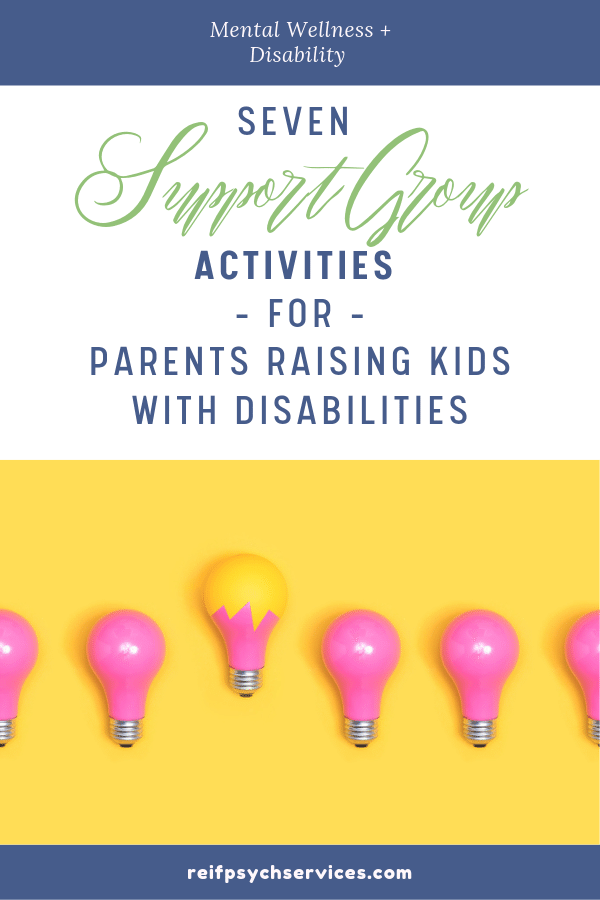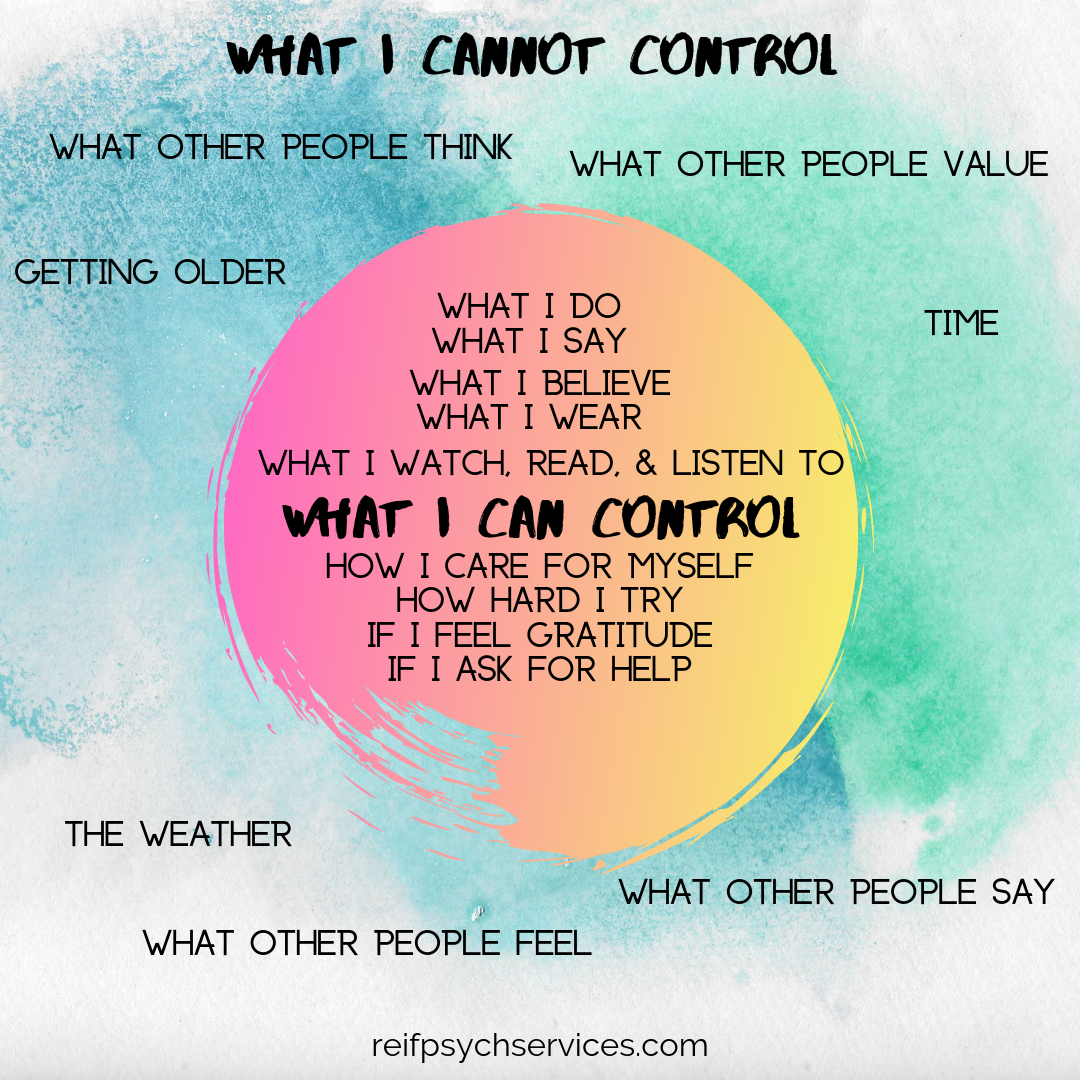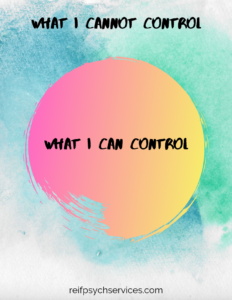I recently wrote a post about 7 things you must do to create a special needs parents support group that’s actually supportive. Since publishing it, I’ve heard from many parents who said that the post helped them create a meaningful peer support group. Some asked if I had any favorite support group activities for special needs parents that they could use.
So, here are seven of my favorite support group activities for special needs parents

Lifeline
Draw a timeline representing your mood since the birth of your child. Highlight the ‘highs and lows’, aiming to have at least 3 of each.
Invite group members to talk about their highs and lows. Remind group members that they are free to share as much or as little as they like. They might share a detailed story about the first time their child smiled at them being a highpoint. Or, they might simply say that there was a low point in February of 2017.
Both approaches are correct.
Use the common elements to guide that meeting’s discussion. Be sure to remind group members to respond with openness if they have different feelings about a similar event.
For instance, many parents may indicate that the day their child was diagnosed was a significant day. But some will say it was the worst day, because it left them filled with fear and shame and feelings of inadequacy. Other parents may say that the day their child was diagnosed was validating for them, and that having a name that explained their child’s differences helped them.
Experiences like these are wonderful in a group setting, because they highlight that the same scenario, ‘getting a diagnosis’ can feel like either a high or a low depending on our own past experiences and beliefs.
Image connection
Select a word to be a theme for each meeting. Invite group members to start each meeting spending a few minutes drawing or writing about what that week’s word means to them.
For instance, if the word is resilience, you might draw a picture of a flower growing in the sidewalk crack. Then invite group members to talk about a time that that word described their parenting a child with special needs.
Here’s a word bank of possible words to use:
- Isolation
- Bravery
- Exhaustion
- Acceptance
- Fear
- Delight
- Guilt
- Anger
- Compassion
- Disappointment
When I have done this activity with groups, group members have often reflected that the negative words usually do not describe their feelings about their child.
They are not angry at their child for having a meltdown. Their anger is directed toward the teachers and school administrators. Those are the people who didn’t follow their child’s support plan to prevent the meltdown.
They are not disappointed in their child for not being able to tie their shoes or make toast. They are disappointed in their spouse or other family members. Those are the people not seeing how hard their child is trying to be independent.
This opens up powerful conversation about what’s actually hard about raising a child with disabilities. Usually, group members agree that it has little to do with their child’s behaviors and needs, and more to do with raising a child that the world doesn’t appreciate or accommodate.
Create a playlist
Invite each group member to select a song that represents their journey as a parent raising a child with disabilities. Or, they may choose a song that illustrates a specific moment or theme in their parenting.
Each member shares what the song means to them. Group leaders can compile the songs and create a playlist that can be shared with all members to listen to at home.
Listen to a guided meditation as a group
Dim the lights, invite group members to sit comfortably, remove their shoes, or even lie on the ground. As a group, listen to a guided meditation. When you’re through, talk about the physical sensations of relaxation that you experienced. Discuss ways that you can be more mindful of how your body is responding to stress throughout the day.
You may of course choose to use any meditation you wish, but I will share that this one is a favorite.
While it is categorized as being for children, I find it to be one of the most soothing, calm inducing meditations available, and many of my adult clients love it.
Values clarification
This activity is a personal favorite. It’s one that I love to do with individual counseling clients who are parents raising kids with disabilities. But it also prompts really insightful conversation in a group setting.
Print the values card sort activity available here and cut out the cards. You’ll need one set of cards for each group member, and each card deck is made up of 83 values cards, so, it’s a lot of cutting! Instruct each group member to sort the values into three groups: those which are not important to them, those which are important, and those which are most important. Have each group member reduce the ‘most important’ group to just their top 10, and then ask them to put those 10 in rank order.
Once each person has completed this, open up the conversation with questions like:
- How are you living in accordance with your values? In what areas have you acted inconsistently with your values?
- What decisions or dilemmas are you facing that could be resolved by being more attuned to your values?
- If you were to live the next year fully invested in living your values, what things would change? What could you do more of, and what would you stop doing?
- How have your values changed since having a child with disabilities?
What I can control, what I cannot control
If you follow me on Facebook, you might have seen this graphic I created and shared a few weeks ago:

Download your own blank version of the worksheet to share with group members.
Invite them to write in detail the things that they can control, and the things that they cannot control.
If your group is open to it, you might break up into small groups or pairs and have group members discuss in more detail. Group members can review each other’s images and point out places where more detail is needed.
For instance, a group member might write that “my health” is within their control, because they eat healthfully and exercise regularly. A partner could point out that some aspects of their health, such as whether they become disabled or develop a major illness, are out of their control. The partner can help the writer be more specific in identifying what they do have control over.
Group discussion can then be devoted to how it affects group members when they devote their time and energy to things which they can control, versus when they attempt to manage things which are out of their control.
What I need
Each group member does this activity individually:
First, select a picture that represents you and place it in the middle of a large piece of paper. Then select pictures that represent the six most important people in your life and paste them around you. The pictures might be printed images of the actual people, or representations of them cut from magazines.
Draw a line connecting each of the people to the picture of you. On the top of each line, write a word or phrase that describes what you need from that person. Under each line, write a word or phrase about what that person needs from you.
As a group, discuss what common themes there are. Encourage group members to identify what changes might be possible if they met the needs of others.
This is a great activity to do after completing the ‘What I can control, what I cannot control’ activity. Group members can encourage each other to focus on the aspects of their relationships that they can control. For example, you cannot control if your husband meets a need, but you can control how you talk to him about it.
Summary
I sincerely hope that these are helpful exercises to you if you belong to a support group for parents raising kids with disabilities. If you love these support group activities for special needs parents,please use the social buttons to share them with others.
If you have other ideas for support group activities for special needs parents, I know that others would love to learn from you! Please share your ideas in the comments!













